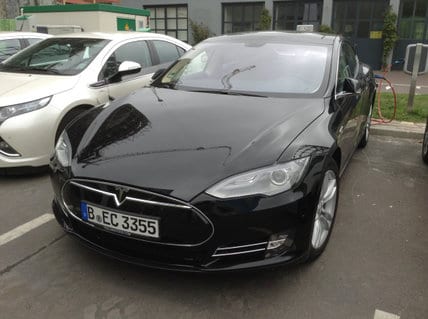Germany’s Chancellor Angela Merkel has previously made her goal to have at least one million electric vehicles on the country’s roads by 2020 quite clear, but these goals are unlikely to be met without new incentives, based on recent comments that she made at a press conference in Berlin.
Putting it relatively bluntly, Merkel stated it thusly: “There’s a lot to do. We see that further subsidies are necessary. We must speak with the German states about that.”

Part of the reason for the need for new incentives now, is down to the fact the German government has in the past “balked” at the approval of EV-incentives on a scale similar to those used in many other countries — as in France, for instance (where up to €6,300 is available to EV-buyers).
The lack of strong incentives is no doubt part of the reason that there are currently only around 24,000 EVs on Germany’s roads.
One of the incentive programs currently being considered in the country is a tax break for EVs (and other zero-emissions vehicles) that are sold specifically as company cars.
“We’re far from our goal to establish Germany as a leading market for electro-mobility,” stated Matthias Wissmann, president of German auto-industry lobby VDA. “The government needs to act on plans such as the corporate tax reduction.”
Part of Merkel’s plan to increase EV use in the country involves supporting the manufacture of EVs within the country itself — partly owing to this support, the country’s automakers will be offering 17 electric models by the end of the year, with a further 12 going on sale next year (announced so far, that is), according to the VDA.
Source: CleanTechnica. Reproduced with permission.










